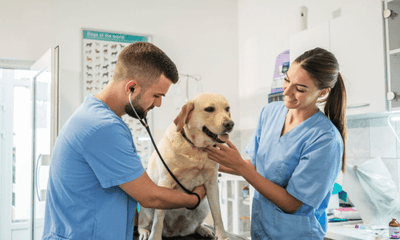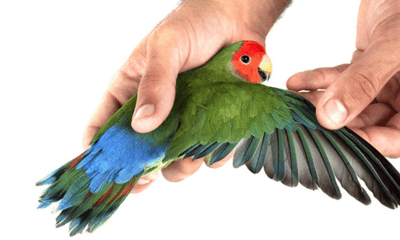Just like humans, pets can experience anxiety. Whether it’s a dog pacing during a thunderstorm or a cat hiding during a house party, these behaviours can signal that your pet is feeling stressed or overwhelmed. At Woonona Petfoods, we believe that a happy pet is a healthy pet, and understanding what causes pet anxiety, and how to manage it, is key to ensuring your furry friend’s overall well being.
What Is Pet Anxiety?
Pet anxiety is a condition where your pet feels worried or fearful, often in response to specific triggers. These triggers can vary greatly between pets and may stem from environmental, social or medical causes. Anxiety can affect pets of all breeds, ages and sizes, although some animals may be more predisposed than others based on their history or temperament.
Common Signs of Anxiety in Pets
Recognising the signs of anxiety is the first step in helping your pet. Keep an eye out for the following behaviours:
-
Excessive barking, howling or whining
-
Pacing or restlessness
-
Hiding or avoiding interaction
-
Trembling or shaking
-
Destructive behaviours (e.g. chewing furniture or scratching)
-
House soiling despite being toilet trained
-
Excessive grooming or licking
-
Refusal to eat or drink
-
Aggression or irritability
Every pet is different, so behaviours may vary. If your pet starts exhibiting any sudden or unusual behaviour, anxiety could be the root cause.
Causes of Pet Anxiety
Understanding what triggers your pet’s anxiety is crucial. Here are some common causes:
1. Separation Anxiety
One of the most common forms of anxiety in dogs and cats. Pets can become extremely distressed when left alone, often displaying destructive behaviours or vocalising excessively.
2. Loud Noises
Thunderstorms, fireworks, construction, and even vacuum cleaners can trigger anxiety. Pets have acute hearing and may find loud or unfamiliar sounds frightening.
3. Changes in Environment or Routine
Moving house, rearranging furniture, or a new baby or pet in the home can cause stress. Even small changes to their daily routine can upset some animals.
4. Past Trauma or Abuse
Rescue pets or those with a history of neglect or abuse may carry anxiety from their past. These pets may be particularly fearful in new environments or around certain people or animals.
5. Lack of Socialisation
Pets that haven’t been properly socialised may become anxious around strangers, other pets or new situations.
6. Health Issues
Pain, illness or cognitive dysfunction (especially in older pets) can cause anxiety. Always consult your vet if anxiety comes on suddenly or worsens over time.
Solutions and Tips to Help Manage Pet Anxiety
Helping your pet manage anxiety often requires a combination of environmental adjustments, behavioural training and, in some cases, products or supplements. At Woonona Petfoods, we’re here to support you with trusted advice and quality solutions to help your pet feel calmer and more secure.
Create a Safe and Comfortable Space
One of the first steps in managing anxiety is giving your pet a designated space where they feel safe and in control. This could be a quiet room, a cosy bed, or a covered crate that provides a den-like atmosphere. Crates, when used correctly, can help provide dogs with a sense of structure and comfort during times of stress.
Stick to a Consistent Routine
Animals thrive on routine. Predictable daily schedules help pets feel secure and reduce the uncertainty that can lead to anxiety. Maintaining regular feeding times, walk schedules, playtime, and bedtime routines creates structure and helps your pet know what to expect. This can be especially helpful during stressful periods, such as household changes or when introducing a new pet.
Use Desensitisation and Counter-Conditioning
Behavioural training techniques like desensitisation and counter-conditioning can be particularly effective for pets with specific fears, such as thunderstorms or car travel. This involves gradually exposing your pet to the trigger in a calm, controlled way while pairing the experience with something positive like treats or affection. Over time, this can help alter their emotional response and reduce fear-based reactions. While it requires consistency and patience, this method is a powerful long-term strategy for managing anxiety.
Provide Mental and Physical Stimulation
Lack of stimulation can exacerbate anxiety, particularly in active or intelligent pets. Incorporating daily physical activity and mental challenges into your pet’s routine can work wonders. Activities such as interactive play, walks, food puzzle toys, and training exercises keep your pet’s brain and body engaged. This not only helps to burn off excess energy but also provides enrichment that can reduce boredom and stress-related behaviours.
Support with Calming Aids and Supplements
Woonona Petfoods offers a wide selection of calming solutions to support pets through periods of anxiety. One of our top-selling options is Vetalogica VitaRapid Tranquil Treats, which use Quick-Release Technology and a blend of soothing ingredients like chamomile, taurine, ginger, and tryptophan. These treats are ideal for managing situational anxiety caused by fireworks, travel, or separation. They are grain-free and made with quality chicken and duck to ensure high palatability.
PAW Complete Calm Chews are another excellent choice, especially for medium to large dogs. These kangaroo-flavoured chews are rich in tryptophan and B vitamins, supporting the nervous system while helping to maintain emotional balance. They also contain nutrients to promote overall well being, making them a great all-in-one option for daily use.
Crooked Lane Naturally Calm Chews are formulated by veterinarians and combine calming herbal extracts with L-tryptophan, magnesium, B vitamins, and a specific probiotic to help support both the nervous system and gut health. These are ideal during travel, thunderstorms, or major lifestyle changes and are proudly made in Australia without artificial additives.
Try Anxiety Wraps and Pheromone Support
Some pets benefit from physical calming tools, such as pressure wraps and pheromone aids. The Thundershirt is a proven solution that uses gentle, constant pressure to help calm anxious dogs and cats. It’s particularly effective during thunderstorms, car rides, or moments of separation. Easy to use and drug-free, it offers a comforting fit without the need for training or medication.
The Adaptil Calm Collar is another trusted product that uses a synthetic version of the dog appeasing pheromone to help dogs feel more at ease. The collar is activated by your dog’s body heat and provides continuous support both indoors and outdoors. It's ideal for easing stress during travel, kennel stays, or vet visits. For calming support in the home, the Adaptil Diffuser Kit offers a convenient plug-in solution that releases the same calming pheromones to create a relaxing atmosphere. This can help reduce behaviours associated with stress, such as barking, pacing, and toileting issues.
Support the Brain-Gut Connection
Emerging research highlights the link between gut health and emotional wellbeing in pets. The Stress K9 Chews are a science-backed supplement designed to address anxiety from the inside out. These chews combine calming botanicals like Valerian root and Tilia Cordata flower with prebiotics, paraprobiotics, and fermented postbiotics in a formula called Bio-K9. Created by vets, nutritionists, and microbiologists, StressK9 Chews are ideal for dogs dealing with separation anxiety, travel-related stress, or fear of vet visits.
Daily Tips to Help Dogs Cope with Anxiety
Managing anxiety in dogs often involves a combination of exercise, behavioural training, and emotional support. Daily walks and consistent playtime help release excess energy that can otherwise feed anxiety. Gradually increasing periods of separation can help dogs feel more comfortable when left alone. Enrichment tools such as lick mats or treat-dispensing toys keep their minds busy and reduce stress. It’s important to speak to your dog calmly during stressful events and avoid punishment, which can make anxiety worse. With time, patience, and the right tools, most dogs show significant improvement.
Consult Your Vet for Severe Anxiety
If your pet’s anxiety is severe or persistent, it’s important to consult with your veterinarian. In some cases, pets may benefit from behaviour therapy or prescribed medication to improve their quality of life. Your vet can help identify the root cause of the anxiety and develop a comprehensive plan tailored to your pet’s specific needs.
Pet anxiety is common, but it doesn’t have to be permanent. With a bit of patience, consistency and the right tools, you can help your pet feel more secure, confident and calm. Woonona Petfoods is here to support you with expert advice and a wide selection of quality products. We stock a carefully selected range of calming treats, supplements, pheromone diffusers, anxiety wraps, and crates to suit pets of all shapes, sizes, and needs. Whether your pet is experiencing mild situational stress or more chronic anxiety, our knowledgeable team is here to help you find the best products and advice for your situation. Visit us in-store or contact us for personalised support, because a calm pet is a happy pet.






